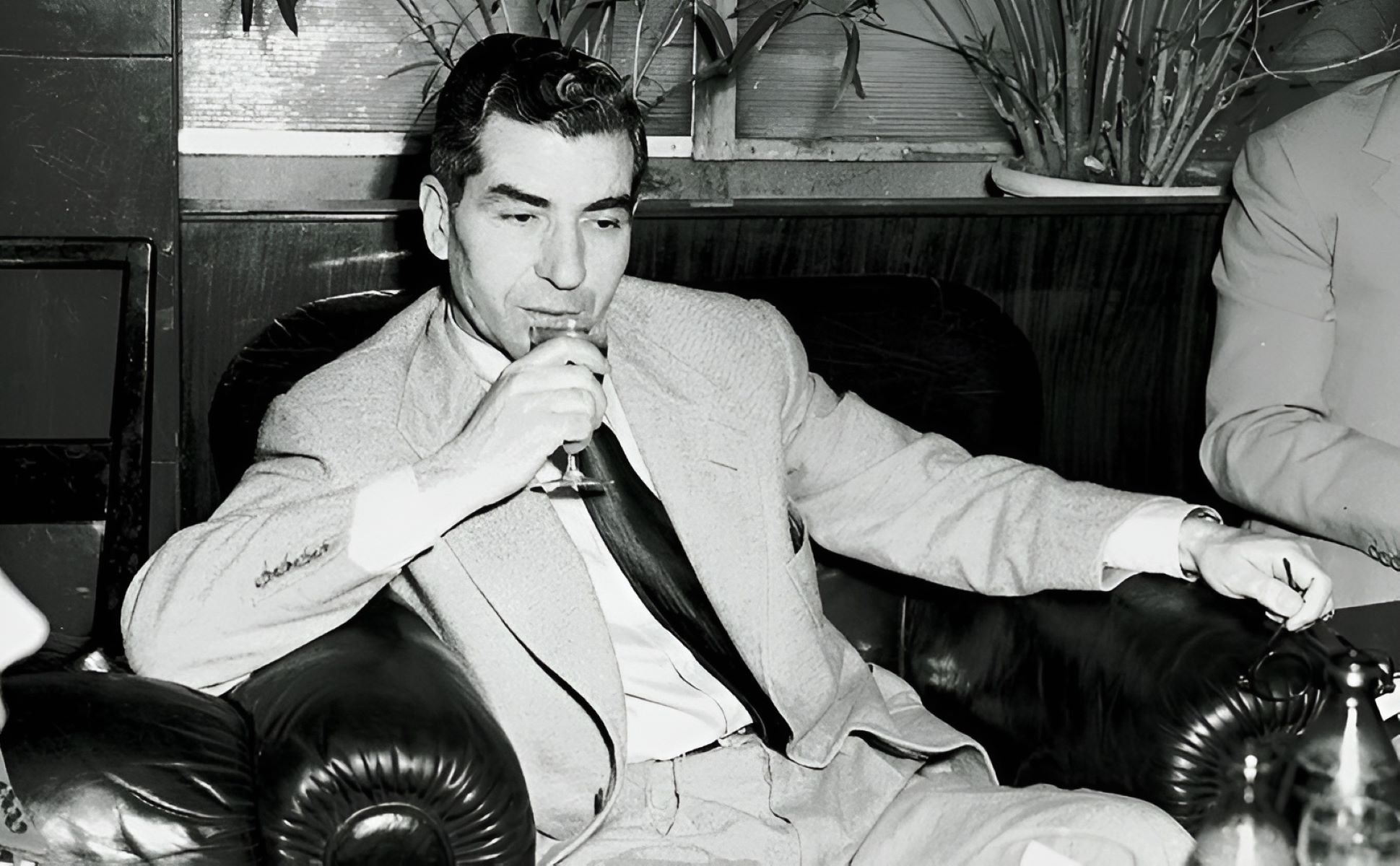
Salvatore Maranzano was a name that struck fear in the hearts of many during the early 20th century. Known as the "Boss of Bosses," Maranzano played a pivotal role in shaping the American Mafia. Born in Sicily, he brought Old World traditions to the New World, creating a legacy that still echoes today. But who was this man beyond the headlines and notoriety? What made him rise to power so swiftly, and what led to his eventual downfall? In this blog post, we'll uncover 35 intriguing facts about Salvatore Maranzano, shedding light on his life, his influence, and the lasting impact he had on organized crime. Get ready to dive into the world of one of history's most infamous mobsters.
Key Takeaways:
- Salvatore Maranzano, a key figure in the American Mafia, rose to power through strategic moves and ruthless tactics, shaping the structure of organized crime for decades to come.
- Maranzano's influence extended beyond his lifetime, shaping the modern Mafia with his hierarchical structure, code of conduct, and strategic leadership approach, leaving a lasting impact on organized crime.
Early Life and Background
Salvatore Maranzano, a name synonymous with organized crime, has a history filled with intrigue and power. Let's dive into some fascinating facts about his early life and background.
- Born on July 31, 1886, in Castellammare del Golfo, Sicily, Maranzano grew up in a region known for its deep mafia roots.
- He studied to become a priest in his youth but eventually abandoned this path to pursue a life of crime.
- Maranzano was heavily influenced by the Sicilian Mafia's traditions and codes, which shaped his future criminal endeavors.
- He immigrated to the United States in the 1920s, seeking new opportunities and expanding his criminal network.
Rise to Power
Maranzano's ascent in the world of organized crime was marked by strategic moves and ruthless tactics. Here are some key moments in his rise to power.
- He quickly established himself as a powerful figure in the American Mafia, particularly in New York City.
- Maranzano became a key player in the Castellammarese War, a bloody conflict between rival mafia factions in the early 1930s.
- He emerged victorious in the Castellammarese War, defeating his rival Joe Masseria and solidifying his control over the New York Mafia.
- Maranzano declared himself the "Boss of Bosses," a title that signified his supreme authority over all mafia families in the United States.
The Mafia Structure
Maranzano's influence extended beyond his own criminal activities. He played a significant role in shaping the structure of the American Mafia.
- He introduced a hierarchical structure to the Mafia, dividing it into families with a clear chain of command.
- Maranzano implemented the position of "capo di tutti capi" or "boss of all bosses," centralizing power under his leadership.
- He established a code of conduct for mafia members, emphasizing loyalty, secrecy, and obedience.
- Maranzano's organizational reforms laid the foundation for the modern American Mafia, influencing its operations for decades to come.
Downfall and Assassination
Despite his power and influence, Maranzano's reign was short-lived. His downfall and assassination marked a turning point in mafia history.
- Maranzano's autocratic leadership style and ambition to control all mafia families led to growing resentment among other mobsters.
- He became increasingly paranoid, fearing betrayal from within his own ranks.
- On September 10, 1931, Maranzano was assassinated in his Manhattan office by a group of hitmen posing as government agents.
- His assassination was orchestrated by his rival, Charles "Lucky" Luciano, who sought to eliminate Maranzano's centralized control.
Legacy and Impact
Maranzano's legacy continues to be felt in the world of organized crime. His influence on the Mafia's structure and operations remains significant.
- His introduction of a hierarchical structure and code of conduct helped the Mafia operate more efficiently and cohesively.
- Maranzano's assassination marked the end of the "Boss of Bosses" title, leading to the establishment of the Mafia Commission, a governing body for the families.
- His life and death have been depicted in various films, books, and television shows, cementing his place in popular culture.
- Maranzano's impact on the Mafia is still studied by criminologists and historians, providing insights into the evolution of organized crime.
Personal Life
Beyond his criminal activities, Maranzano had a personal life that was equally intriguing. Here are some lesser-known facts about his personal life.
- He was married and had children, though he kept his family life separate from his criminal activities.
- Maranzano was known for his intelligence and strategic thinking, often likened to historical military leaders.
- He had a passion for ancient Roman history, which influenced his approach to leadership and organization.
- Despite his ruthless nature, Maranzano was also known for his charm and charisma, which helped him gain allies and followers.
Influence on Modern Mafia
Maranzano's influence extended beyond his lifetime, shaping the modern Mafia in various ways. Here are some key aspects of his lasting impact.
- His hierarchical structure and code of conduct continue to be fundamental principles of the Mafia.
- Maranzano's emphasis on loyalty and secrecy remains a cornerstone of mafia operations.
- The Mafia Commission, established after his death, helped prevent conflicts and maintain order among the families.
- His strategic approach to leadership and organization has been studied and emulated by subsequent mafia leaders.
Cultural Depictions
Maranzano's life and legacy have been immortalized in popular culture. Here are some notable depictions of his character.
- He has been portrayed in several films, including "The Godfather" series, where his character is loosely based on real-life events.
- Maranzano's story has been featured in numerous books and documentaries about the Mafia.
- His life has inspired fictional characters in various television shows, highlighting his enduring influence on popular culture.
- Maranzano's legacy continues to captivate audiences, providing a glimpse into the world of organized crime.
Final Thoughts
Maranzano's life was marked by ambition, power, and intrigue. His influence on the Mafia and organized crime is undeniable. Here are a few more intriguing facts about him.
- He was known for his meticulous planning and attention to detail, which contributed to his success in the criminal underworld.
- Maranzano's assassination was one of the first major hits orchestrated by the Mafia, setting a precedent for future power struggles.
- His legacy serves as a reminder of the complex and often violent world of organized crime, where power and loyalty are constantly tested.
Final Glimpse at Salvatore Maranzano
Salvatore Maranzano's life was a whirlwind of power, strategy, and influence. Known as the "Boss of Bosses," he played a pivotal role in shaping the American Mafia. His strategic mind and ruthless tactics left an indelible mark on organized crime. Maranzano's rise to power, his infamous rivalry with Lucky Luciano, and his eventual assassination highlight the volatile nature of the Mafia world.
Understanding Maranzano's life offers a glimpse into the complexities of organized crime during the early 20th century. His legacy continues to intrigue historians and crime enthusiasts alike. From his Sicilian roots to his untimely death, Maranzano's story is a testament to the turbulent and often dangerous world of the Mafia. His influence remains a significant chapter in the history of organized crime, reminding us of the intricate web of power and betrayal that defined his era.
Frequently Asked Questions
Was this page helpful?
Our commitment to delivering trustworthy and engaging content is at the heart of what we do. Each fact on our site is contributed by real users like you, bringing a wealth of diverse insights and information. To ensure the highest standards of accuracy and reliability, our dedicated editors meticulously review each submission. This process guarantees that the facts we share are not only fascinating but also credible. Trust in our commitment to quality and authenticity as you explore and learn with us.


